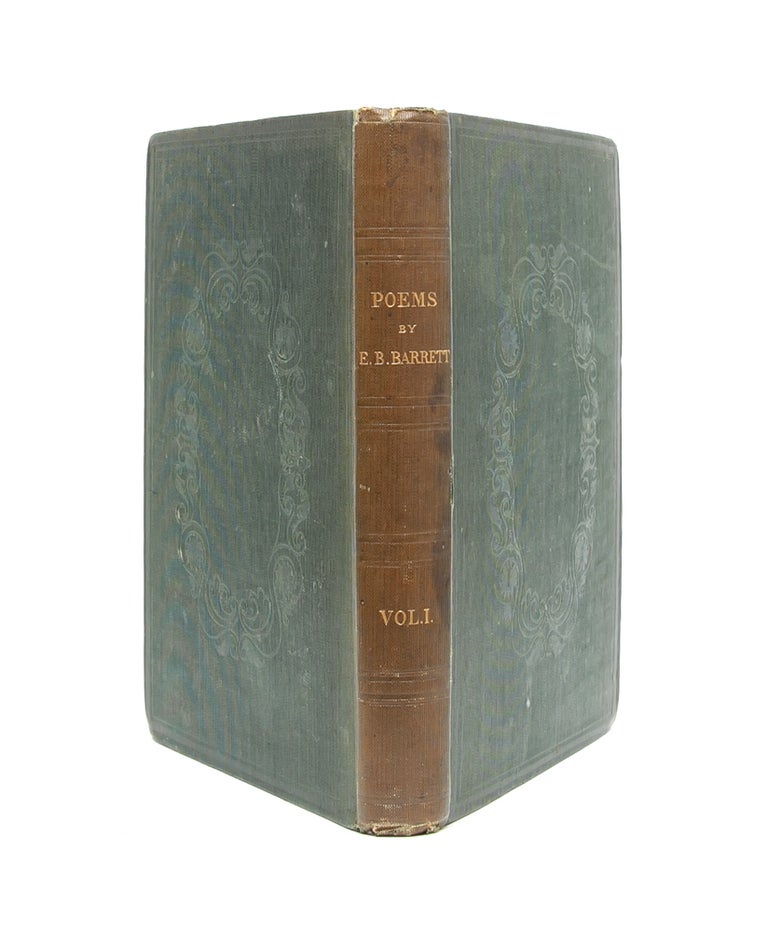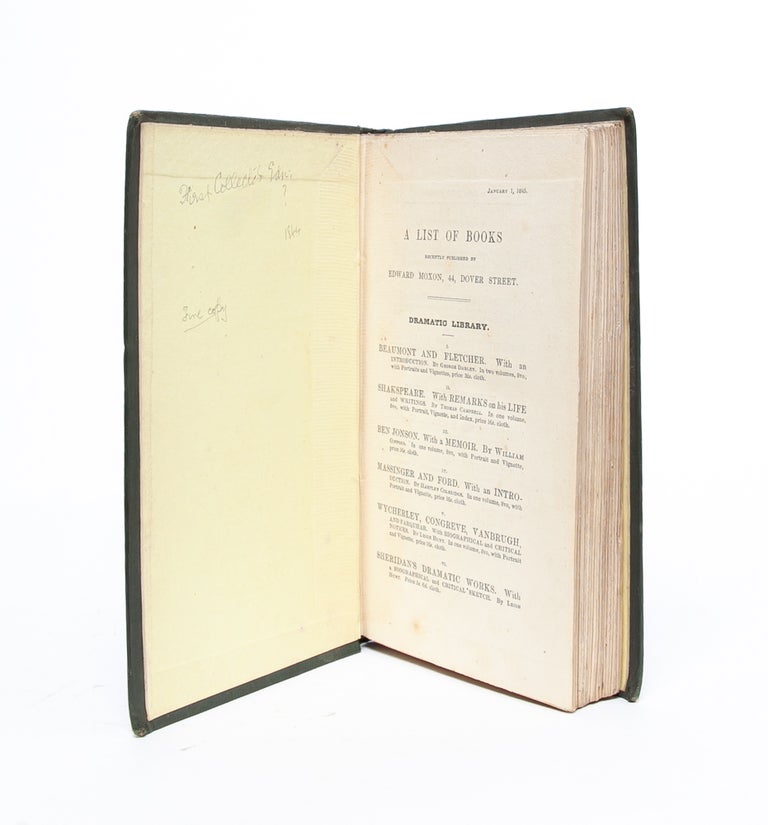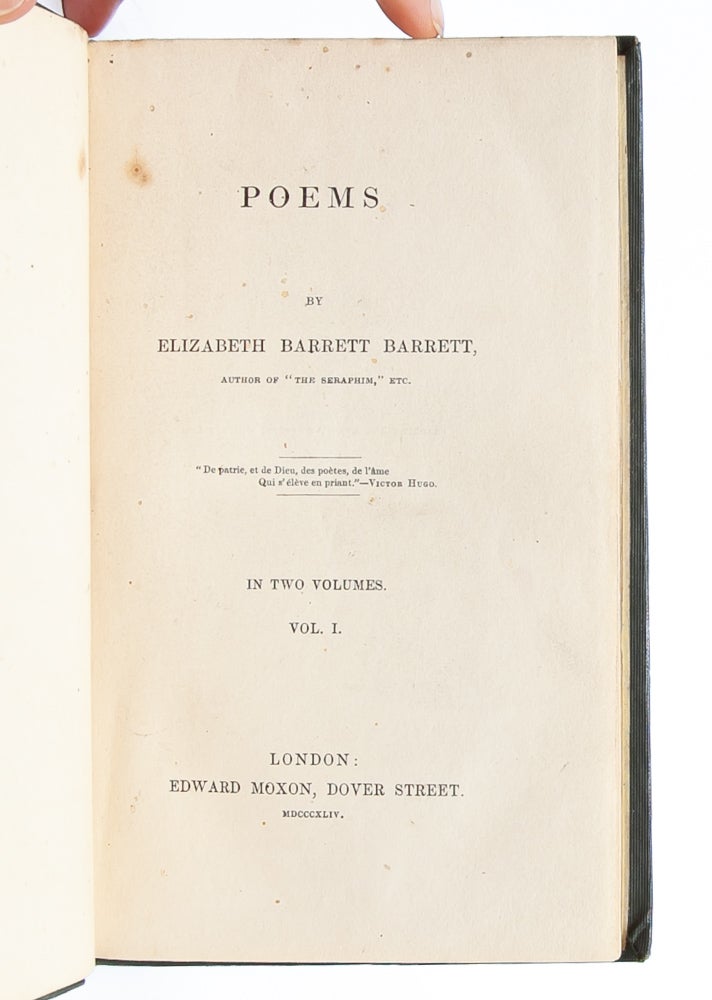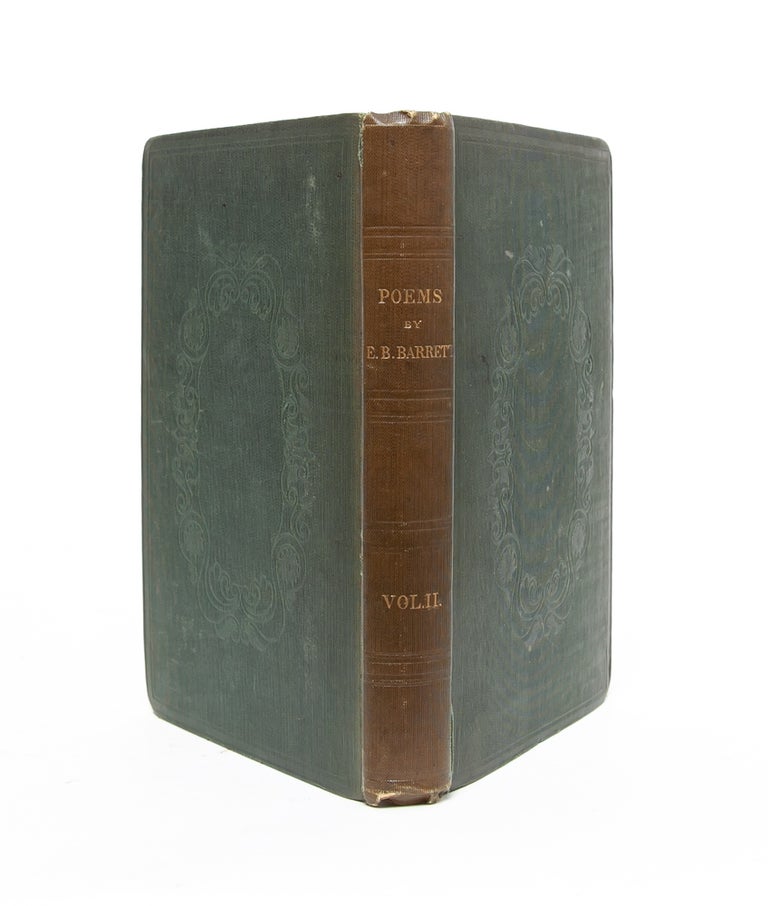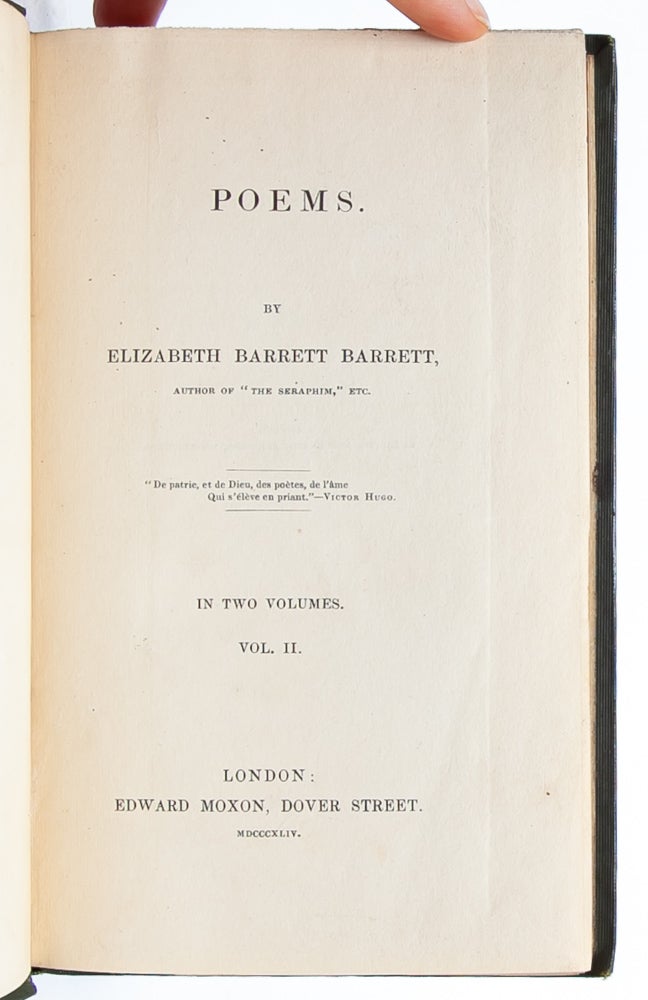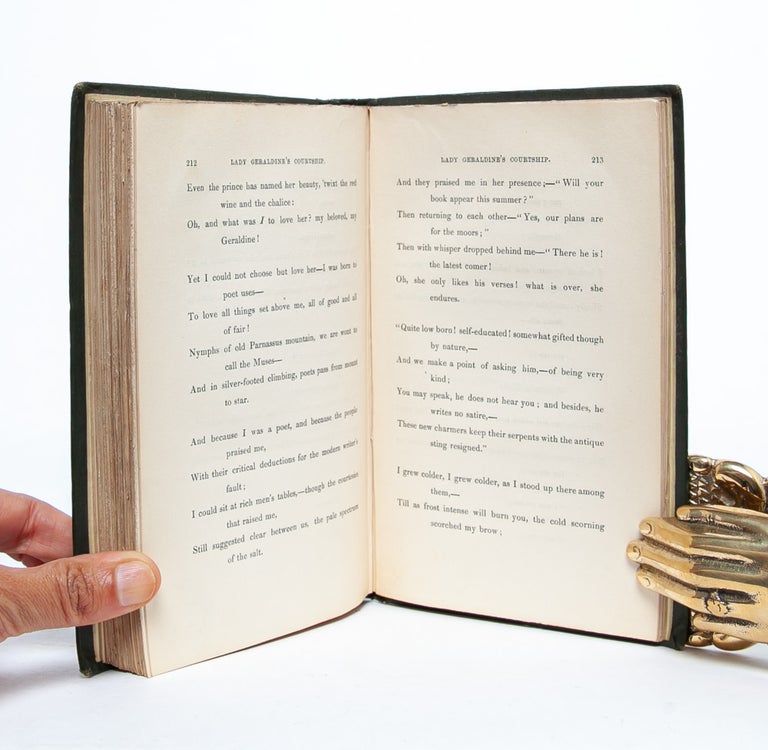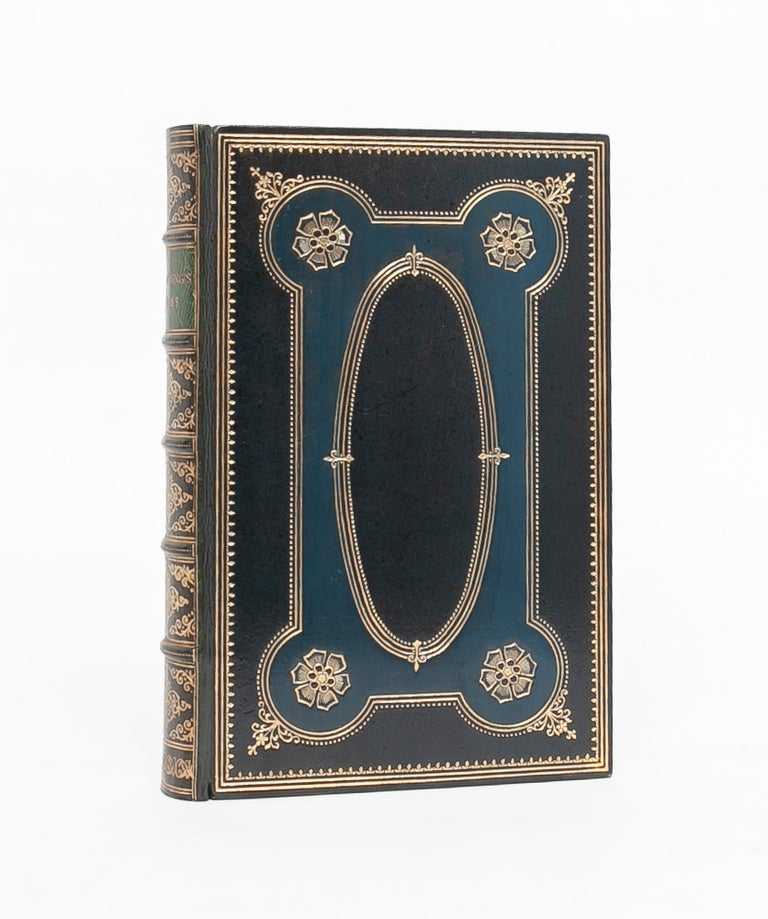Poems
London: Edward Moxon, 1844.
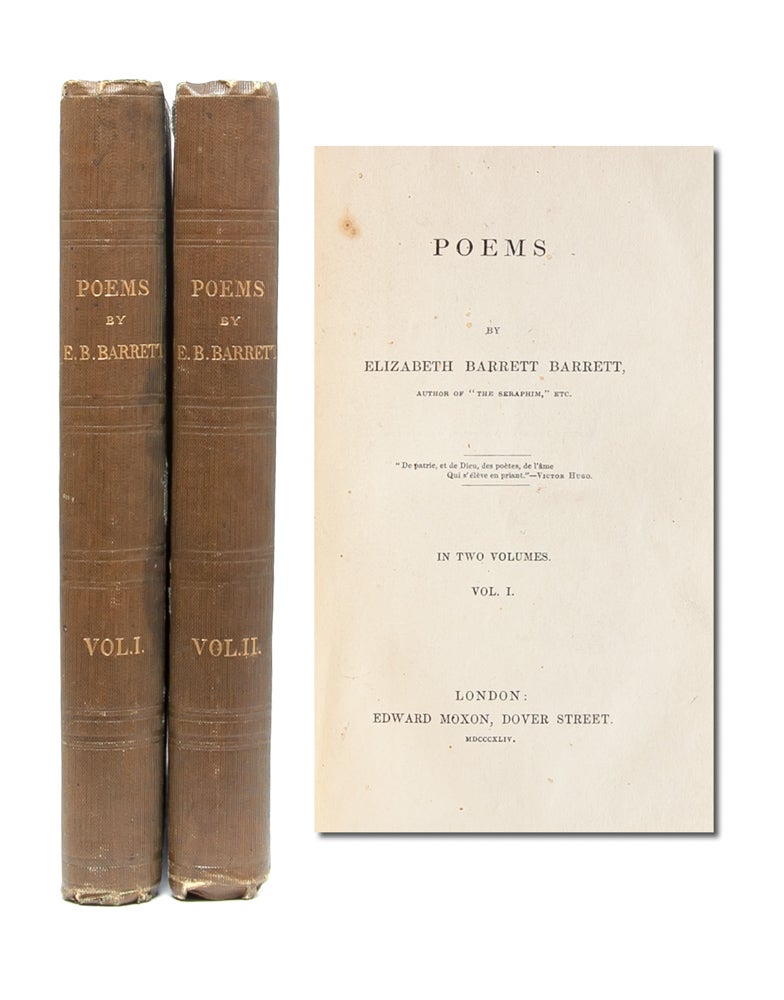

Poems
London: Edward Moxon, 1844. First edition. A Near Fine copy in the publisher's original cloth binding. Spines a bit toned, slight wear at the extremities and a short split in the cloth on the lower spine of volume 2. Internally clean and fresh, an excellent set overall. It appears that sheets were mostly selected and bound up at random. This copy with a publisher's catalogue tipped into vol. 1 dated Jan. 1845 and with the corrected reading of the lines on page 141 (2nd state). In vol. 2 pgs 160 and 163 are correctly numbered (1st state), but page 275 finishes with "The End" (2nd state).
Praised by journalist Harriet Martineau as an "immense advance" in original poetry, Browning's two volume set was immensely popular immediately following its release. Browning increased her commitment to using literature to produce social change, composing works for this collection that were "sentimental yet politically-charged and heaving with genuine empathy" (British Library). Drawing attention to social inequity that resulted from English economic policy in pieces like The Cry of the Children, her poem The Runaway Slave at Pilgrim's Point further addressed the real life tragedies experienced by black women forced into the American slave trade. Other poems, including those in praise of George Sand, considered the challenges women writers confronted within a patriarchal culture. In this collection, Browning "anticipated Virginia Woolf's theory of the androgynous mind; the notion that the creative mind flourishes when a balance between the female/feminine and male/masculine is achieved. It entails being unconscious of, and thereby unrestrained by, biological sex" (British Library). Fine (Item #5239)

